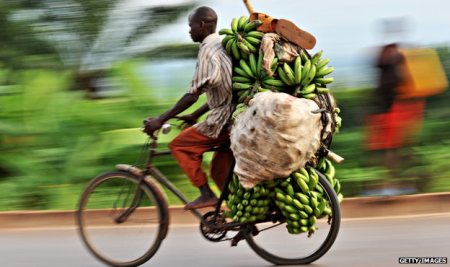“For the rest of the nineties, we couldn’t even dream of showing our face in Musaga,” Jullienne added. “It improved with the peace talks and the Arusha Agreement in 2000. When the rebels and the army of the previous regime integrated in a new national army in November 2003, things suddenly moved faster. People started to visit the hood to see the state of their houses. To see what was left of it. We opened CAM again very soon after that. And I came to live here again. Well, not in Musaga itself, but in Kanyosha, a bit further down the road.”
“How do you do that?” I wanted to know.
“Your neighbours try to kill you, chase you out of the neighbourhood as if you were dogs and destroy your goods. But a few years later, there you are again. How do you look each other in the eyes again? How do you start to build a new life together?”
“This went smoother and faster than we had expected,” clarifies Julienne.
“It had been a Tutsi neighbourhood, but not all Tutsi were radicals. Some of them had protected us, sometimes taking serious risks themselves. They had hidden us, or warned us when an attack was prepared. They helped us to escape. And as far as the others are concerned… When we came back here in the neighbourhood, we had nothing. We saw that our slaughterers had lost everything too. They had lost a lot of their beloved too. We all came impoverished and damaged out of this war without winners. To realize this helped us turn the page.”
Truth and peace.
“Step by step, daily life normalised,” Edouard remembers.
“The former rebellion won the elections. That was important for the self-esteem of the Hutu. All of a sudden, they were the ones to lead the game. Also in Musaga, many Tutsi joined CNDD-FDD. Party membership cards have always been much more important than capacities and skills if you want a job in this country. That isn’t democratic, but at least now it helps to break down the barriers between the two communities.”
“[Is there] a fear that one day the hate between Hutu and Tutsi will flare up again in Musaga or elsewhere in Burundi?”
“No way!,” they yell together.
“The society is organized in a very different way now. The political arena is no longer a question of ethnic background but of political parties.”
“Not that Musaga is free of violence today. Certainly not,” says Edouard.
“The Imbonerakure, the youth league of the ruling party, imposes here, as in many other places, their version of law and order. They nearly function as a parallel power to the police. You better not become known as an FNL or MSD militant, because that would certainly mean you will be intimidated, harassed, arrested or even killed at some point. But now it effectively is the majority who govern, power is dominated by the law of mathematics. It is extremely unlikely that Tutsi with their 15 percent of the population will deliver the president in the next generation. The ultimate struggle for control of the state becomes intra-Hutu competition. That is why repression is most harsh against the FNL. It is them that CNDD-FDD fears most of all. And since Musaga [still] counts more Tutsi than Hutu, repression is not so hard here than for instance in Kamenge, which kept an overwhelming Hutu majority.”
Julienne went back to her office, but I have one last question: “What do people expect here in Musaga from the Truth and Reconciliation Commission which presumably will be set up very soon?”
Edouard looks at me, with a penetrating gaze: “Burundians and truth, that will never be a simple story. We know the truth. We know who has killed. We were there. We remember everything much [better] than we want to. But we are afraid to speak the truth. Because we’re scared. Afraid that the fragile peace we have now might come under pressure or even disappear if we start digging too hard into the past. Because, if there is one lesson we have learned in all those years, it is this: in this country, wars only have losers.”










